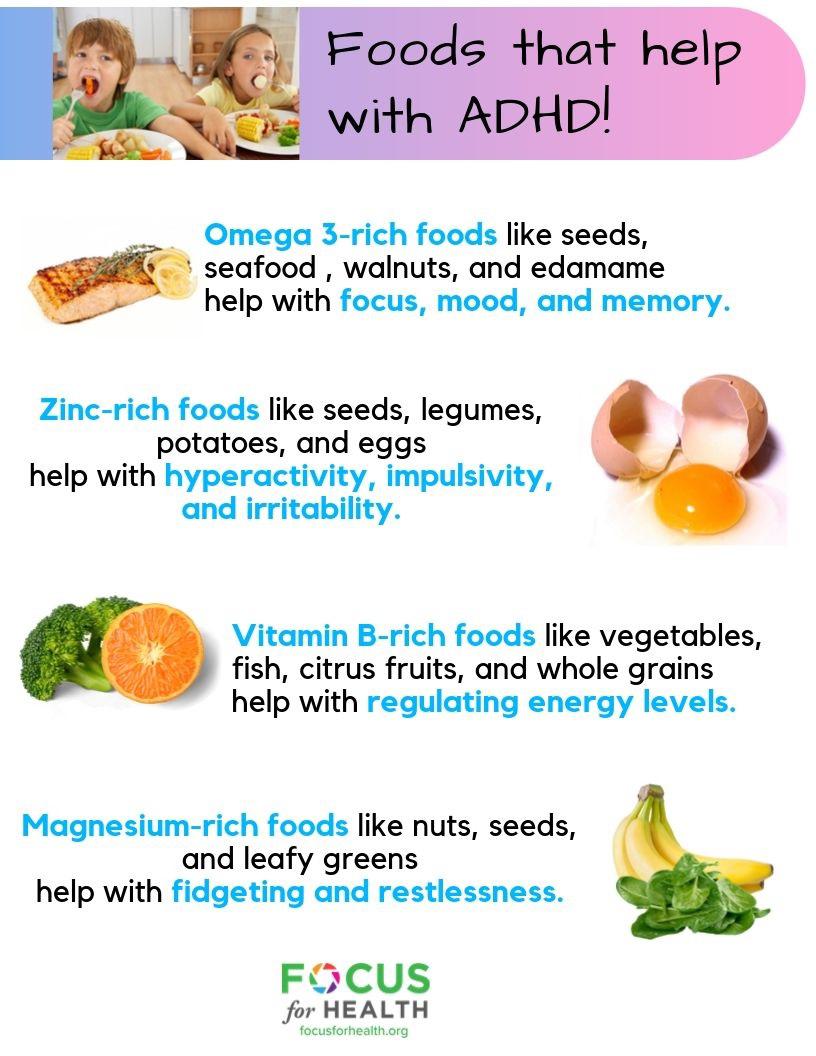
Nutrition and ADHD Connection: How Diet Impacts Symptoms for Better Management
January 13, 2024 - Reading time: 3 minutes
While medication remains one of the primary treatments for managing ADHD symptoms, research has shown that nutrition can play an essential role in improving or exacerbating these symptoms.
The Role of Nutrition in Managing ADHD Symptoms
A growing body of evidence suggests that certain foods may influence the severity of ADHD symptoms, either positively or negatively. This connection is thought to be due to the impact of specific nutrients and food additives on brain function and behavior. Some studies have found that a diet rich in fruits, vegetables, whole grains, lean proteins, and healthy fats can help improve ADHD symptoms, while diets high in processed foods, sugars, and artificial ingredients may worsen them.
Dietary Tips for Managing ADHD Symptoms
- Balanced Diet: A well-balanced diet is crucial to managing ADHD symptoms. Incorporate a variety of fruits, vegetables, whole grains, lean proteins, and healthy fats into your daily meals. This will ensure that you are receiving the necessary nutrients for optimal brain function.
- Hydration: Staying hydrated is essential to overall health and can help improve focus and concentration. Aim to drink at least 8 cups of water per day, or more if you are physically active.
- Eliminate Artificial Colors and Flavors: Some studies have linked artificial food colors and flavors with increased ADHD symptoms in children. Avoid products containing these additives whenever possible.
- Limit Sugar Intake: Consuming large amounts of sugar can cause rapid spikes in blood sugar levels, which may lead to mood swings and difficulty concentrating. Opt for natural sweeteners like honey or maple syrup when needed, and choose low-sugar snacks whenever possible.
- Increase Omega-3 Fatty Acids: These essential fatty acids are crucial for brain health and have been shown to improve ADHD symptoms in some individuals. Incorporate omega-3 rich foods like salmon, flaxseeds, chia seeds, and walnuts into your diet regularly.
- Avoid Food Sensitivities: Some people may be sensitive or intolerant to specific foods that can trigger ADHD symptoms. Keep a food diary to identify any potential triggers and avoid them accordingly.
- Probiotics: A healthy gut is essential for overall well-being, including mental health. Incorporate probiotic-rich foods like yogurt, kefir, sauerkraut, or kimchi into your diet to support a balanced microbiome and improve focus.
While there is no one-size-fits-all approach to managing ADHD symptoms through nutrition, incorporating these tips can help you understand the connection between food choices and their impact on your mental health. Remember that individual responses may vary, so it's essential to pay attention to how specific foods affect your own ADHD symptoms. Consult with a healthcare professional or registered dietitian for personalized advice tailored to your unique needs.
Remember, always consult with a medical professional before making any significant changes to your diet or treatment plan.
About
You can read reviews online, check with the Better Business Bureau, or ask for references from people you trust. When you've narrowed down your options, contact the centre to ask about their process and fees. Once you've found a qualified assessment centre, they will be able to help you determine if your child has ADHD and develop a treatment plan.